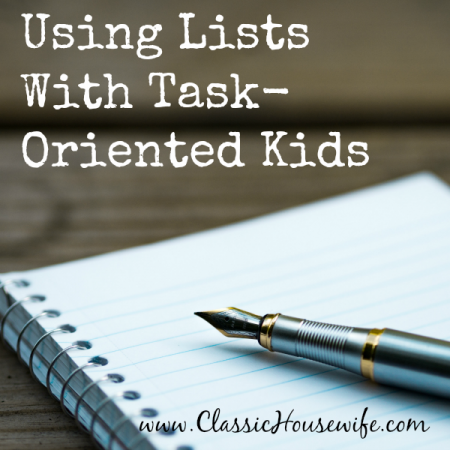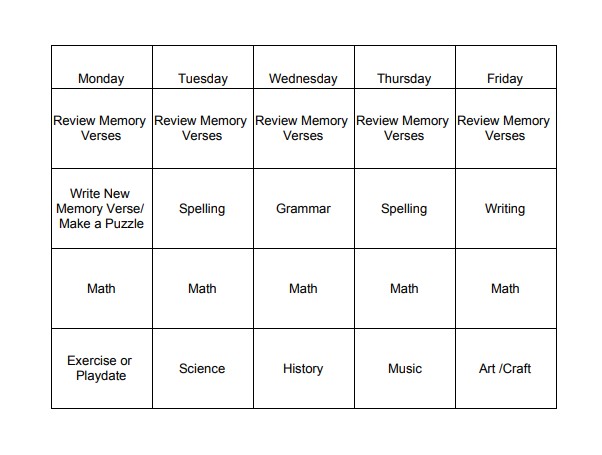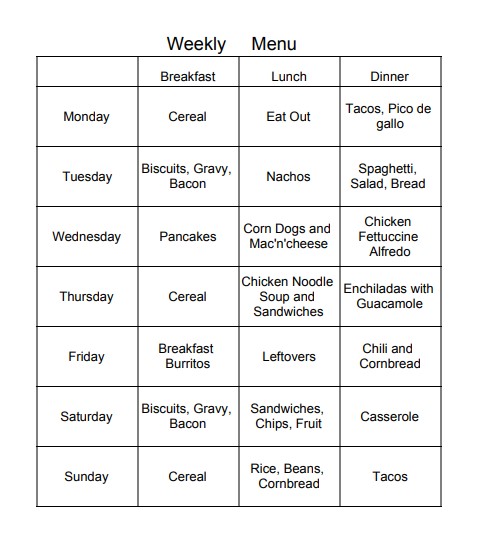
I like lists. I make lists for everything.
Apparently I have passed this affinity on to my six year old daughter. Often, she drags her feet through household chores, certain parts of her school work, running errands, etc. She constantly asks me (at the end of the day) “What are we doing tomorrow?”, (in the morning) “What are we doing today?”, and (throughout the day) “What are we doing after this?” With a list, she is eager to read what we are going to do, to go check the list to see what is next, and sometimes it makes getting through everything on the list a little easier. It certainly saves a lot of questions.
Making a list seems like an obvious answer. I wonder why it took me so long to think of it?
So I made some lists for our refrigerator.
The first list is our school work list. It’s actually more of a chart, with a list for each day. Before, I knew what we were going to do but my daughter didn’t. Now, she can look and see what’s on the schedule for the day and she likes that. Our list looks like this:
 Our second list is the menu for the week. My daughter likes to go look at it and read to me what we’re going to have to eat for the day. I shop for groceries one week at a time, so I plan my menu for each meal of the day in order to make sure I buy everything I need. That list looks something like this:
Our second list is the menu for the week. My daughter likes to go look at it and read to me what we’re going to have to eat for the day. I shop for groceries one week at a time, so I plan my menu for each meal of the day in order to make sure I buy everything I need. That list looks something like this:

Last, is our daily task and chore chart. This weekly chart has check boxes for each chore for the appropriate number of days under the appropriate person’s name. There are no scheduled chores for Sunday.
We also make lists when we make a trip to town to run errands, go shopping, and when we have a BIG CLEANING DAY we make lists of what we need to do in each room of the house on post-its and stick them on the door of each room.
The benefits of making lists are obvious, but they have really been a big help with the kids.
Using lists with task-oriented kids:
- provides structure and predictability
- involves the children more than simply directing them
- visually displays what has been accomplished and what remains to be done
- breaks the tasks into manageable pieces and prevents the entire list from being overwhelming
- helps teach responsibility
- helps teach time management & prioritization
- encourages satisfaction as a reward upon completion of the chores (in lieu of other methods of bribery and cajoling)3
- provides a system of accountability
I’m sure there are other benefits, but these are the main benefits to us right now. With as much as my daughter likes them, I’m sure we’ll be using them for a while.
We like lists!
P.S. If you would like to download a blank weekly school schedule and menu plan sheet (on one page together,) then you can download that planning sheet here.
Photo by Aaron Burden on Unsplash

I so need to do this, I have one who can’t do things without an end in sight! She would be much more productive with a check-off! Thanks for the tip.
I could use something to keep me on track as well.